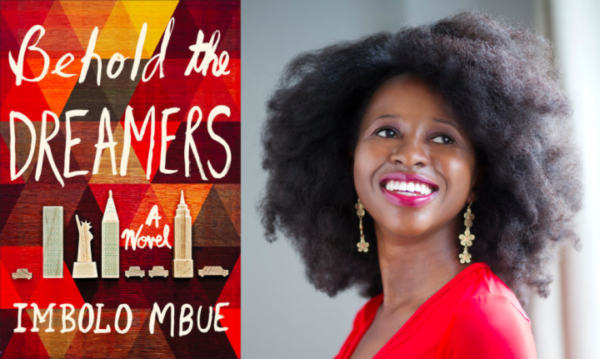
The longlist for the 2018 International Dublin Literary Award has been announced, and five Africans are on it: Cameroun’s Imbolo Mbue for Behold the Dreamers, Ghana’s Yaa Gyasi for Homegoing, Nigeria’s Yewande Omotoso for The Woman Next Door, and South Africans Nthikeng Mohlele for Pleasure and Mohale Mashigo for The Yearning. The 2017 award had gone to Angola’s Jose Eduardo Agualusa for A General Theory of Oblivion.
Formerly the IMPAC Dublin Literary Award, the International Dublin Literary Award is in its twenty-third year and, at €100,000, is the richest for a single book of fiction published in English. Sponsored by Dublin City Council, it is managed by Dublin City Libraries, in line with Dublin’s 2010 designation as a UNESCO City of Literature. For each prize, libraries in major cities worldwide make nominations.
Earning its author a $1 million advance, Imbolo Mbue’s Behold the Dreamers made her the first African winner of the PEN/Faulkner Award for Fiction and was picked for Oprah’s Book Club. Here is a description of the book by its publishers Penguin Random House.
Jende Jonga, a Cameroonian immigrant living in Harlem, has come to the United States to provide a better life for himself, his wife, Neni, and their six-year-old son.
In the fall of 2007, Jende can hardly believe his luck when he lands a job as a chauffeur for Clark Edwards, a senior executive at Lehman Brothers. Clark demands punctuality, discretion, and loyalty—and Jende is eager to please. Clark’s wife, Cindy, even offers Neni temporary work at the Edwardses’ summer home in the Hamptons. With these opportunities, Jende and Neni can at last gain a foothold in America and imagine a brighter future. However, the world of great power and privilege conceals troubling secrets, and soon Jende and Neni notice cracks in their employers’ façades.
When the financial world is rocked by the collapse of Lehman Brothers, the Jongas are desperate to keep Jende’s job—even as their marriage threatens to fall apart. As all four lives are dramatically upended, Jende and Neni are forced to make an impossible choice.
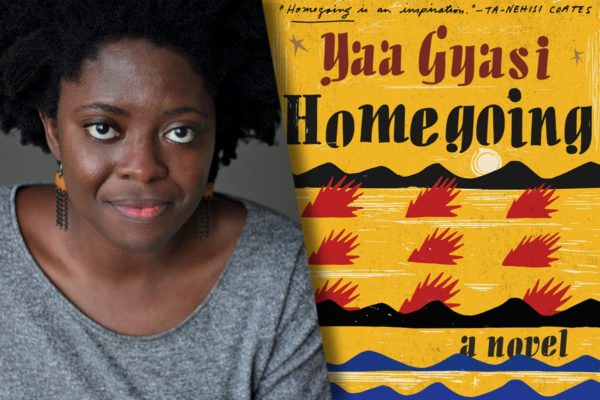
Bought for a rumoured $1 million, Yaa Gyasi’s Homegoing is running for its fifth award. It received the 2016 National Book Critics’ Circle (NBCC) John Leonard Prize, the 2017 PEN Hemingway Award for Debut Fiction, a 2017 American Book Award, and was runner-up for the 2017 Dayton Literary Peace Prize. It further earned a nomination for the PEN/Robert W. Bingham Prize for Debut Fiction at the 2017 PEN America Literary Awards and secured Gyasi a place on Granta‘s prestigious Best of Young American Novelists list of 2017. Here is a description of the novel on Amazon.
The unforgettable New York Times best seller begins with the story of two half-sisters, separated by forces beyond their control: one sold into slavery, the other married to a British slaver. Written with tremendous sweep and power, Homegoing traces the generations of family who follow, as their destinies lead them through two continents and three hundred years of history, each life indeliably drawn, as the legacy of slavery is fully revealed in light of the present day.
Effia and Esi are born into different villages in eighteenth-century Ghana. Effia is married off to an Englishman and lives in comfort in the palatial rooms of Cape Coast Castle. Unbeknownst to Effia, her sister, Esi, is imprisoned beneath her in the castle’s dungeons, sold with thousands of others into the Gold Coast’s booming slave trade, and shipped off to America, where her children and grandchildren will be raised in slavery. One thread of Homegoing follows Effia’s descendants through centuries of warfare in Ghana, as the Fante and Asante nations wrestle with the slave trade and British colonization. The other thread follows Esi and her children into America. From the plantations of the South to the Civil War and the Great Migration, from the coal mines of Pratt City, Alabama, to the jazz clubs and dope houses of twentieth-century Harlem, right up through the present day, Homegoing makes history visceral, and captures, with singular and stunning immediacy, how the memory of captivity came to be inscribed in the soul of a nation.
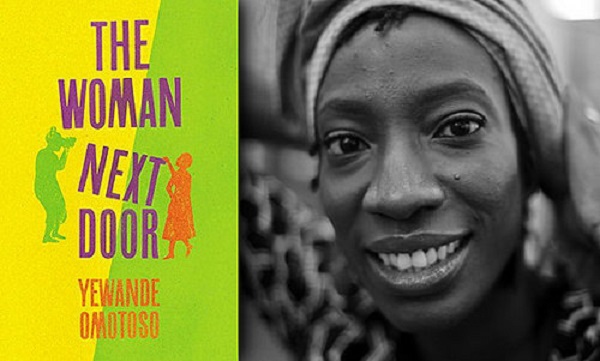
Yewande Omotoso’s The Woman Next Door was longlisted for the 2017 Baileys Prize and shortlisted for the 2017 University of Johannesburg Main Prize. Here’s a description on Amazon.
Hortensia James and Marion Agostino are neighbours. One is black, one white. Both are successful women with impressive careers. Both have recently been widowed. And both are sworn enemies, sharing hedge and hostility and pruning both with a vim and zeal that belies the fact that they are over eighty.
But one day an unforeseen event forces the women together. And gradually the bickering and sniping softens into lively debate, and from there into memories shared. But could these sparks of connection ever transform into friendship? Or is it too late to expect these two to change?
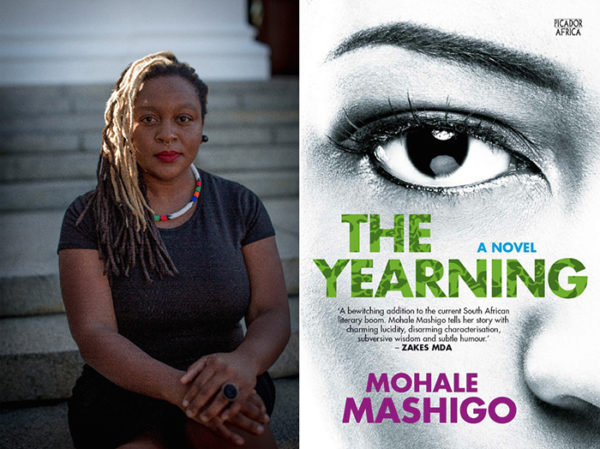
Mohale Mashigo’s The Yearning won the 2017 University of Johannesburg Debut Prize and was longlisted for the 2016 Etisalat Prize. Here’s a description from Pan Macmillan South Africa.
How long does it take for scars to heal? How long does it take for a scarred memory to fester and rise to the surface? For Marubini, the question is whether scars ever heal when you forget they are there to begin with.
Marubini is a young woman who has an enviable life in Cape Town, working at a wine farm and spending idyllic days with her friends … until her past starts spilling into her present. Something dark has been lurking in the shadows of Marubini’s life from as far back as she can remember. It’s only a matter of time before it reaches out and grabs at her.
The Yearning is a memorable exploration of the ripple effects of the past, of personal strength and courage, and of the shadowy intersections of traditional and modern worlds.
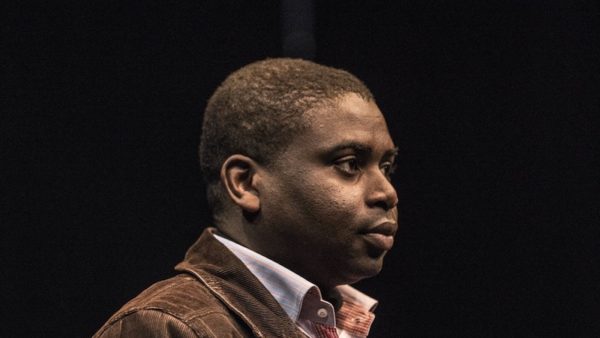
Nthikeng Mohlele’s Pleasure won the 2017 University of Johannesburg Main Prize. Here is a description by The Magunga Bookstore.
The notion of pleasure in all its guises is one of the oldest and most enduring grand themes of literature, presented here through the eyes and thoughts of writer and dreamer Milton Mohlele. Thoughtful, eccentric and besieged by the erotic and the sensual, the profane and the redemptive, Milton thinks and writes on pleasure as it is both experienced and imagined. Drawn against the canvas of wartime Europe and modern-day Cape Town, South Africa, Milton sacrifices all for glimpses into the secrets and deceptions of pleasure – and how powerless those apparent insights are in the vast scale of life in its glory and absurdity.
An African History of the International Dublin Literary Award
The first African winner of the International Dublin Literary Award is Morocco’s Tahar Ben Jelloun in 2004, for his novel This Blinding Absence of Light. In 2005, South Africa’s Diane Awerbuck made the shortlist for her novel Gardening at Night. In 2006, there were two Africans: Nigeria’s Chris Abani for GraceLand and Algeria’s Yasmina Khadra for The Swallows of Kabul. In 2007, J.M. Coetzee, then of South Africa, was chosen for Slow Man.
In 2008, Yasmine Khadra made a return with The Attack. In 2012, it was Sierra Leonean-Scottish Aminatta Forna for The Memory of Love. In 2015, the longlist had Chimamanda Adichie for Americanah, Aminatta Forna again for The Hired Man, Zimbabwe’s NoViolet Bulawayo for We Need New Names, and Morocco’s Mahi Binebine for Horses of God, with Adichie and Binebine reaching the shortlist. In 2016, the shortlist had Rwanda’s Scholastique Mukasonga for Our Lady of the Nile.
Alongside 2017 winner Agualusa on the ten-writer shortlist were Nigeria’s Chinelo Okparanta for Under the Udala Trees and his close friend Mozambique’s Mia Couto for Confession of the Lioness. They had been chosen from a longlist of 147 books, which included Nigeria’s Chigozie Obioma for The Fishermen and Algeria’s Kamel Daoud for The Meursault Investigation.
Congratulations to Imbolo Mbue, Yaa Gyasi, Yewande Omotoso, Nthikeng Mohlele and Mohale Mashigo.
See all the longlisted books HERE.


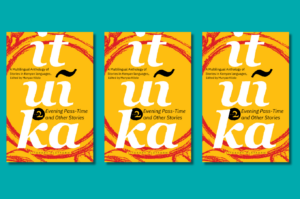




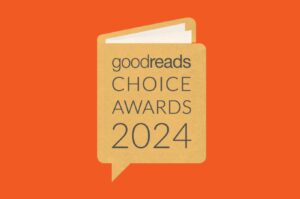

COMMENTS -
Reader Interactions